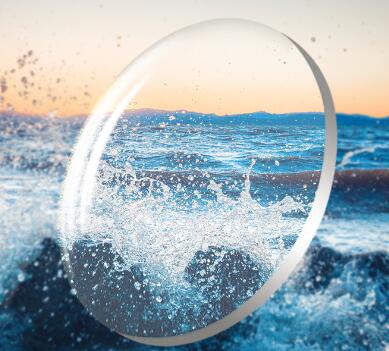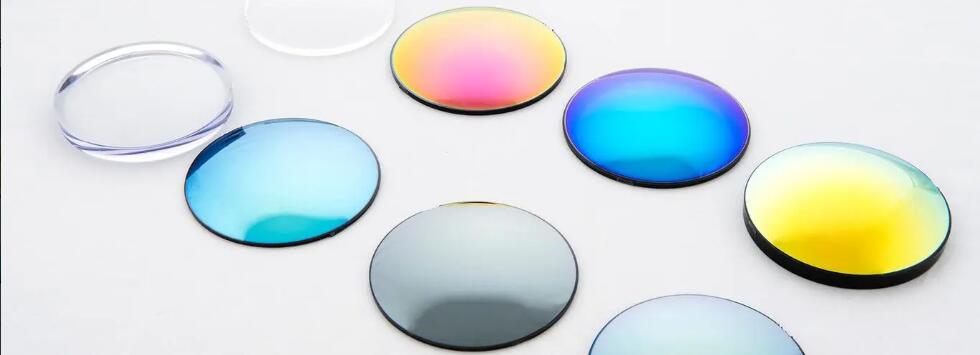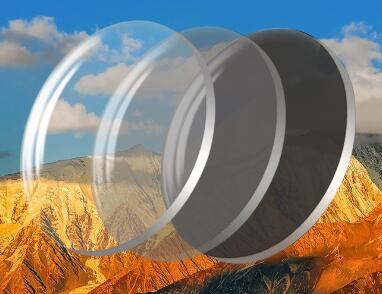Which Lens Is More Better?
First, what is the material of the lens?
1. Resin lens.
Resin lens is a kind of lens we use more at present, it is a phenolic structure of chemical substances made up. Light weight, high temperature resistance, impact resistance is not easy to break, broken without edges and corners, safe, can effectively block UV, by many people wearing glasses love.
2. Glass lenses.
Glass lens clarity is slightly higher than resin, than other materials of the lens scratch resistance, wear resistance, thin lens, good optical performance, low price, but heavy, but also fragile.
3. PC lens.
PC lens chemical name polycarbonate, is thermoplastic material, PC lens is also called "space sheet", "universe sheet". PC lens is strong, not easy to break, impact resistant, so it is also called safety tablet, is currently used for glasses lens the lightest material, but the price is relatively expensive. In terms of performance, PC chip is better than resin chip.
4. AC lens.
PC lens and AC lens are resin lenses, but their processes are different, the difference is that the former is hard, the latter is soft, AC lens has excellent strength and toughness characteristics, light weight, high perspective rate, good fog resistance.
5. Polarized lenses.
Generally used in sunglasses, is a car owners and fishing enthusiasts necessary equipment, can filter out a lot of glare interference, avoid the occurrence of blinding, dazzling and other phenomena, but if the arc bend of the lens itself can not show the optical standard refractive state, the polarizing effect will be weakened, affect the image authenticity, and poor durability.
6. Nylon lens.
Nylon lens is made of nylon, nylon lens elasticity is very high, has excellent optical quality, can be strong impact resistance, usually used as a protective goods.
Two, how to choose the lens is better?
1. Know the origin.
Generally, the error of domestic lenses is within 10 degrees, and the error of foreign lenses is within 5 degrees. For example, 500 degrees of lenses, domestic lenses may be made between 490 and 510 degrees, and foreign lenses are made between 495 and 505 degrees. The difference between the advantages and disadvantages of this error is actually very small, and will not have a bad effect on the eyes. But domestic lenses are cheaper, so buy lenses should be mainly domestic.
2. Determine the efficacy.
At present, the efficacy of lenses is relatively large, but most of them are anti-blue lens. If you choose anti-blue lens, you generally choose the lens that filters 30% blue light, which can block out the harmful blue light produced by part of the screen. Blue filter lenses with a filter effect of 20% to 30% are difficult to distinguish from ordinary lenses in appearance, but if they are high efficiency lenses with more than 50% blue filter, their appearance will appear yellow.
3. Bifocal lenses.
This type of lens can only distinguish between the distant region above and the near region below, and there is no intermediate progressive region. The advantage is that the field of view is wider than the progressive multifocal lens, which is suitable for people who need to see closely. But the disadvantage is that there is an obvious dividing line in the center of the appearance of the lens, which is not suitable for those who attach great importance to the appearance of the lens; If students only want a pair of glasses to prevent the deepening of myopia, bifocal lenses are better than asymptotic multifocal lenses, because the former has a larger closeup field of vision.
4. Color-changing lenses.
This kind of lens will turn black in the sun, just like the sun glasses will block the strong light from the eyes. It is of great help to the people who are often active in the sun, so that the eyes have the comfort of soft light, but also can avoid the eyes from being damaged by the strong sunlight.
Different lenses also have different effects. Generally, the material of lenses is resin. Secondly, we can choose lenses according to our own needs.

Thanks for reading
Sophie Yang
004@mikeeyewear.com



